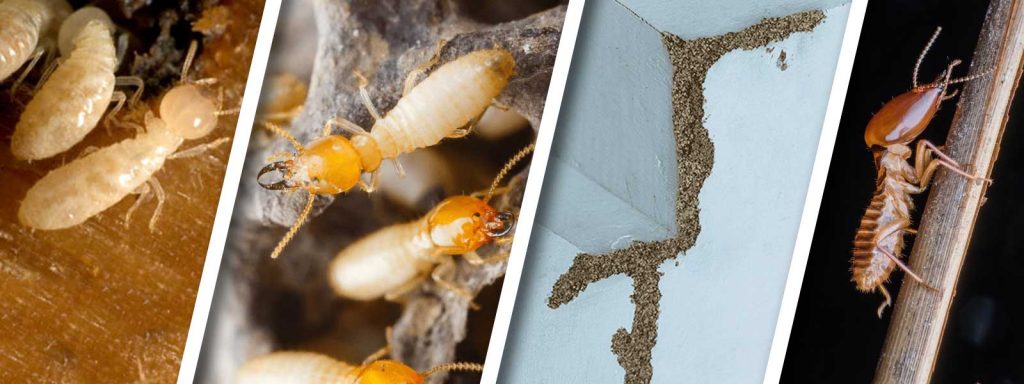Top-Rated Termite Control Services: Guarantee Long-Term Defense for Your Residential or commercial property
Top-Rated Termite Control Services: Guarantee Long-Term Defense for Your Residential or commercial property
Blog Article
Environmental Effect of Bug Control: Harmonizing Efficiency With Sustainability
The ecological effect of insect control is a crucial issue that calls for a delicate balance in between achieving efficiency in taking care of parasites and making sure sustainability of our ecological communities. As we make every effort to shield our crops, homes, and wellness from the hazards presented by bugs, the methods we utilize can accidentally damage the setting. From using damaging chemicals that permeate right into our dirt and water to the unplanned effects on non-target varieties, the consequences of conventional bug control methods are significant. However, there are emerging strategies that provide wish for an extra lasting technique to pest monitoring. These services not just purpose to attend to the instant pest issues but additionally consider the long-term wellness of our world.
Harmful Chemicals in Parasite Control
The utilization of unsafe chemicals in bug control positions substantial ecological and health and wellness risks that call for careful factor to consider and mitigation methods. Chemicals, insecticides, and herbicides are generally used to eliminate insects, but their prevalent application can lead to unintentional effects. These chemicals can infect soil, water resources, and the air, affecting not just the targeted parasites however also useful insects, wild animals, and human beings.

To address these threats, integrated insect monitoring (IPM) strategies are being advertised as a more sustainable option. IPM involves a combination of methods such as organic control, environment control, and the targeted usage of pesticides as a last option (ant control high point nc). By adopting an alternative strategy to pest control, we can minimize the ecological and wellness impacts related to damaging chemicals while properly managing pest populaces
Impact on Non-Target Types
Thinking about the unexpected repercussions of bug control methods, the influence on non-target species is a critical aspect that calls for comprehensive evaluation. While pest control measures intend to target particular pests, other microorganisms in the environment may be accidentally influenced. Non-target species, consisting of useful bugs, birds, animals, and also plants, can suffer straight or indirect damage from pesticide applications or organic control methods.
Chemicals can have lethal or sub-lethal effects on non-target varieties. For example, insecticides made to deal with a specific bug bug might hurt pollinators like bees or natural predators such as ladybugs. In addition, chemical residues can gather in the atmosphere, impacting non-target organisms gradually. Biological control agents, if not species-specific, can position risks to unplanned targets, interrupting the eco-friendly balance.
To alleviate the influence on non-target types, incorporated insect monitoring (IPM) techniques that highlight an all natural technique to pest control are suggested. These methods prioritize making use of eco-friendly methods, decreasing injury to helpful organisms while efficiently handling pest populations. Conducting thorough risk assessments and monitoring the results of parasite control efforts are important actions in guarding non-target species and advertising overall ecological community health.
Dirt and Water Contamination
Unintended ecological effects of pest control approaches expand beyond impacting non-target types, with substantial implications for soil and water contamination. Chemicals, herbicides, and chemical fertilizers made use of in bug control can seep right into the dirt and pollute groundwater, presenting a hazard to both water and earthbound communities. Soil contamination can interrupt the equilibrium of microbes vital for vitamins and mineral cycling and plant development, leading to lowered soil fertility and productivity. These chemicals can linger in the setting for prolonged periods, gathering in the soil and possibly going into the food chain.
Water contamination is an additional important problem associated with parasite control practices. To reduce dirt and water contamination from parasite control tasks, integrated bug administration approaches that prioritize sustainability and reduce chemical inputs are essential.
Air Contamination From Chemical Use
Direct exposure to airborne chemicals during farming applications positions a significant concern for air pollution control measures. In addition, pesticide drift, where pesticides are brought by the wind to unintentional areas, can lead to the contamination of neighboring communities and water bodies.

Approaches for Lasting Pest Control
In the realm of farming practices, carrying out lasting insect control approaches is critical for preserving ecological equilibrium and guarding crop yields. Lasting pest control highlights the usage of eco pleasant approaches to manage pest populaces effectively while reducing harm to non-target microorganisms and communities. Integrated Insect Management (IPM) is a widely adopted approach that combines biological, social, physical, and chemical control approaches to attain long-lasting bug administration services.
Crop rotation and diversity are additionally efficient strategies to interrupt pest life cycles and produce less beneficial conditions for pests to flourish. Eventually, by integrating these sustainable pest control approaches, farmers can achieve a balance in between pest administration performance and ecological stewardship.
Verdict
Finally, the environmental influence of pest control approaches need to be very carefully considered to balance efficiency with sustainability. Damaging chemicals used in insect control can bring about soil and water contamination, air pollution, and injury non-target species - termite control services. It is important to apply lasting insect control methods to decrease these negative effects on the atmosphere and advertise a much healthier ecological community for future generations
By adopting a holistic method to pest control, we can lessen the ecological and wellness influences associated with hazardous chemicals while successfully taking care of pest populaces.

To alleviate the air pollution triggered by chemical use, it is crucial to embrace incorporated insect monitoring techniques that focus on the usage of non-chemical insect control approaches, such as read here crop rotation, all-natural killers, and resistant plant selections. Sustainable bug control stresses the use of ecologically pleasant methods to handle bug populaces efficiently while lessening harm to non-target organisms and environments. Integrated Parasite Management (IPM) is a commonly embraced strategy that combines biological, cultural, physical, and chemical control techniques to attain lasting pest management services.
Report this page